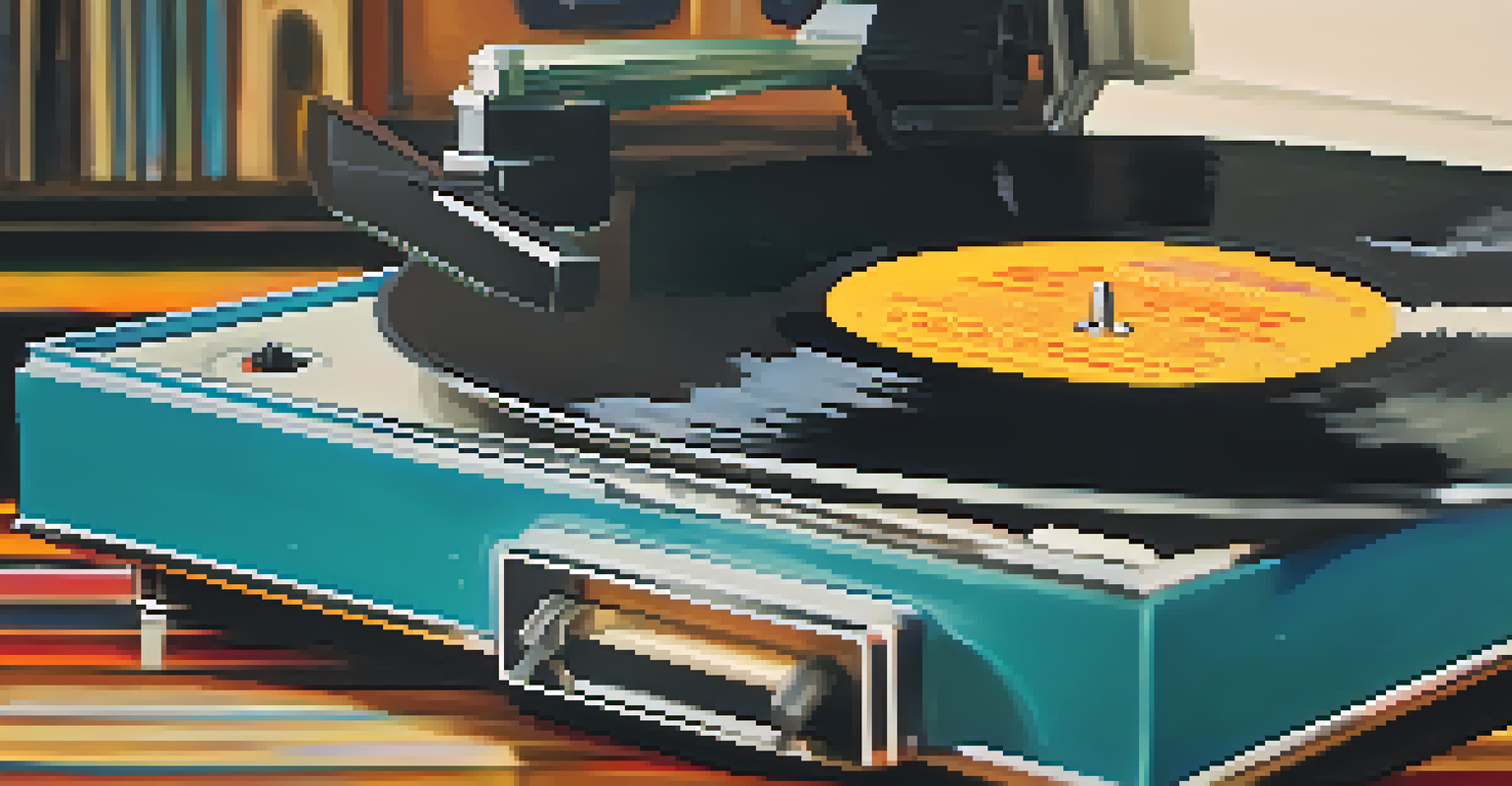How to License Music for Video Games: A Complete Guide

Understanding Music Licensing Basics for Video Games
Before diving into the licensing process, it’s essential to grasp the basics of music licensing. At its core, music licensing involves obtaining permission to use a piece of music in your video game. This includes understanding the different types of rights, such as mechanical rights and synchronization rights, which dictate how music can be used and distributed.
Music can change the world because it can change people.
In the context of video games, synchronization rights are particularly important because they allow you to pair music with visual content. Think of it like pairing a great wine with a meal; the right music can enhance the gaming experience significantly. Understanding these rights sets the foundation for a smoother licensing process.
As you navigate this landscape, remember that each piece of music is unique, and so is its licensing requirement. Getting familiar with these terms can prevent headaches down the road and lead to a more enjoyable game development experience.
Identifying the Right Music for Your Game
Choosing the right music for your game can feel like searching for a needle in a haystack. You'll want music that not only fits the theme and mood of your game but also resonates with your target audience. For example, a quirky indie game might benefit from upbeat, whimsical tracks, while a serious narrative-driven game may need more atmospheric, emotional tunes.

Once you have a clear vision of the type of music you need, consider exploring various platforms where artists share their work. Websites like SoundCloud or Bandcamp can be treasure troves for finding unique tracks. Additionally, think about reaching out to local musicians or composers who might be interested in collaborating.
Basics of Music Licensing Explained
Understanding different types of music rights is crucial for a smooth licensing process in video game development.
Remember, the music you choose will enhance the player's journey, so take your time. Think of it as casting the right actors for a play; the right music can elevate the entire experience.
Exploring Different Licensing Options Available
When it comes to licensing music, there are several options to consider. One popular choice is the traditional licensing route, where you negotiate directly with the rights holder and pay a fee for usage. This is similar to renting a venue for an event—you get exclusive access for a specified period, but costs can vary widely.
Without music, life would be a mistake.
In contrast, royalty-free music is an attractive option for many indie developers. These tracks usually come with a one-time fee, allowing you to use the music without ongoing costs. It’s like buying a ticket for a concert; you pay once and enjoy the music without further obligations.
Ultimately, the choice depends on your budget, timeline, and the specific needs of your game. Balancing these factors will help you find the best licensing option that suits your project.
Navigating the Licensing Agreement Process
Once you've selected the music, it’s time to tackle the licensing agreement. This document outlines the terms of use, including how long you can use the music, where it can be distributed, and any fees involved. Think of it as a roadmap that guides your journey through the music rights landscape.
It's crucial to read the agreement carefully, as overlooking details can lead to complications later. If you’re unsure about any terms, don’t hesitate to seek legal advice or consult someone with experience in music licensing. Clarity at this stage can save you from potential legal troubles down the line.
Choosing the Right Music Matters
Selecting music that fits your game's theme enhances the player experience and should resonate with your target audience.
After both parties agree to the terms, make sure to keep a copy of the signed agreement. This document serves as your protection and proof of your right to use the music in your game.
Understanding Copyright and Fair Use in Gaming
Copyright is a crucial concept in music licensing, as it protects the rights of the original creators. In the gaming world, using copyrighted music without permission can lead to serious consequences, including fines or the removal of your game from platforms. It’s like trying to borrow a friend’s car without asking—they might not take it well!
Fair use is another area that’s often misunderstood. While it allows for limited use of copyrighted material without permission in certain situations, it’s a gray area that can be risky to navigate. For instance, using a short clip of a song for commentary might fall under fair use, but using an entire track generally does not.
Understanding these concepts helps you steer clear of legal pitfalls and ensures that the music you use is ethically sourced. When in doubt, it’s best to seek permission or choose music that is clearly marked as free to use.
Managing Your Music Library and Licensing Records
As your game development progresses, managing your music library becomes essential. Keeping track of the music you've licensed, along with their agreements, will save you time and prevent confusion later on. A well-organized library is like a well-stocked toolbox; it helps you find exactly what you need when you need it.
Consider creating a spreadsheet that includes details like the song title, artist, license type, and expiration dates. This way, you’ll have all your information at your fingertips and can easily refer back to it as needed. Plus, it helps you stay compliant with licensing terms.
Manage Licensing Agreements Wisely
Keeping organized records of music licenses and agreements can prevent confusion and ensure compliance throughout game development.
Regularly review your library to ensure everything is up to date. Just as you wouldn't want outdated tools in your toolbox, keeping your music library fresh will enhance your game's quality.
Tips for Working with Musicians and Composers
If you decide to work with musicians or composers, remember that clear communication is key. Lay out your vision for the game and how you want the music to fit into it. This collaboration is like a dance; both sides need to be in sync to create something beautiful.
Establishing a timeline and budget upfront can also help streamline the process. Discussing these elements early on prevents misunderstandings later, ensuring that both parties are on the same page. It’s always better to address potential issues before they arise.

Lastly, be open to feedback and creative input from the musicians. They might have ideas that could enhance your game in ways you hadn’t considered. After all, collaboration often leads to the most innovative solutions.